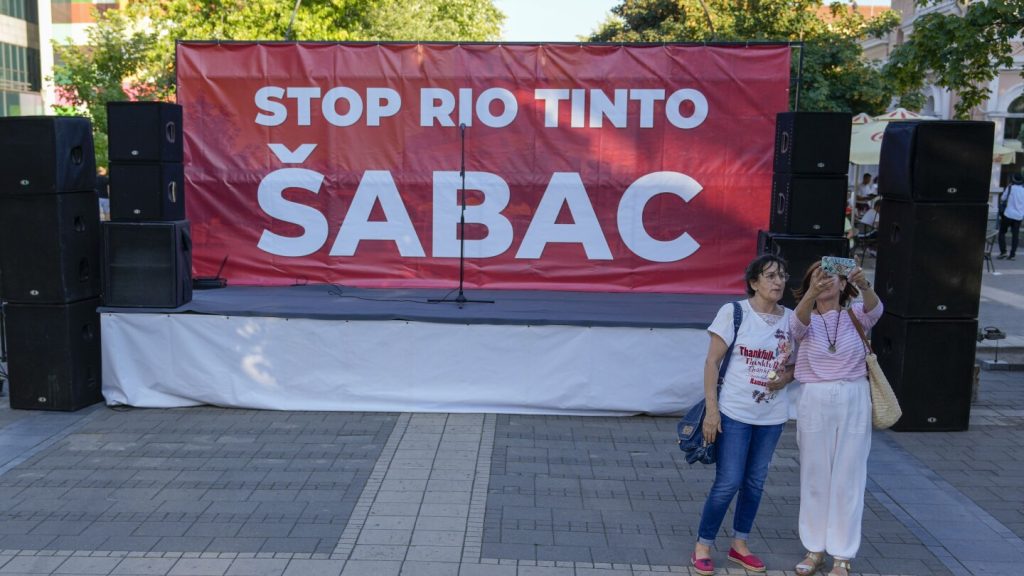The protests in Serbia on Monday were in response to a lithium excavation project that the government recently signed with the European Union. The deal is aimed at reducing Europe’s dependency on China and bringing Serbia closer to the EU. However, environmentalists and opposition groups in Serbia have criticized the deal, arguing that it would cause irreversible damage to the environment without benefiting the citizens. The biggest lithium reserve in Serbia is located in a valley with fertile land and water, sparking opposition to the project.
The multinational Rio Tinto company had started an exploration project in the area several years ago, which was met with significant opposition and eventually suspended. However, Serbia’s constitutional court recently overturned the government’s decision to cancel a $2.4 billion mining project by Rio Tinto in the Jadar valley, allowing for its revival. This decision has sparked further protests in various Serbian towns, with citizens expressing their distrust of the government and their determination to prevent the excavations from moving forward.
Serbian President Aleksandar Vucic has stated that any excavation will not begin before 2028 and that the government will seek strong environmental guarantees before proceeding. There has also been discussion of a potential referendum on the issue. Protesters in Serbian towns, including Kraljevo and Sabac, voiced their opposition to the excavation plans, accusing the government of prioritizing its own interests over those of the citizens. The protests have reignited concerns about environmental damage and the impact of the mining project on the local communities.
The previous protests against Rio Tinto in 2021 were seen as a major challenge to Vucic’s rule, with thousands of demonstrators blocking roads and bridges in opposition to the company’s activities. The latest protests indicate ongoing resistance to the lithium excavation project and highlight the deep divide between the government and citizens who are concerned about the environmental consequences. Activists and protesters have vowed to continue their opposition to the project, expressing their determination to protect their natural resources and hold the government accountable for its decisions.
The presence of German Chancellor Olaf Scholz at the summit in Belgrade underscores the international significance of the lithium excavation project and its potential impact on Europe’s supply chain. The deal with the EU represents an opportunity for Serbia to strengthen its ties with the bloc but has also exposed divisions within the country over environmental protection and economic development. As the protests continue and the government faces growing pressure to address the concerns of its citizens, the future of the lithium excavation project remains uncertain.


